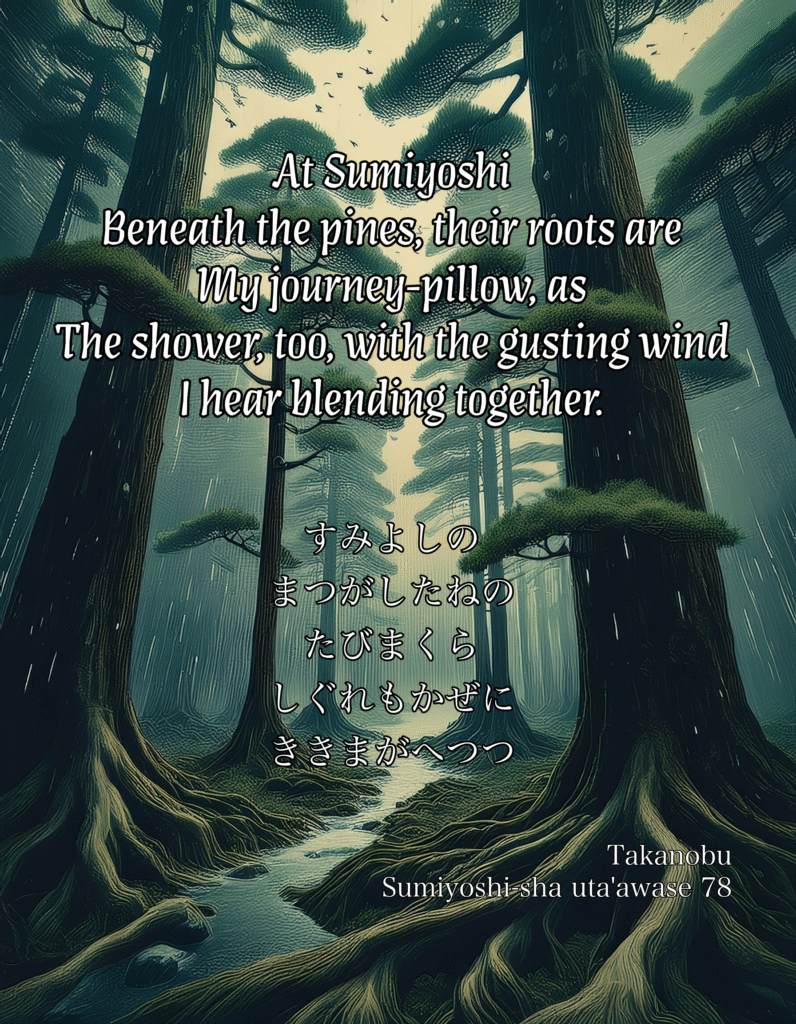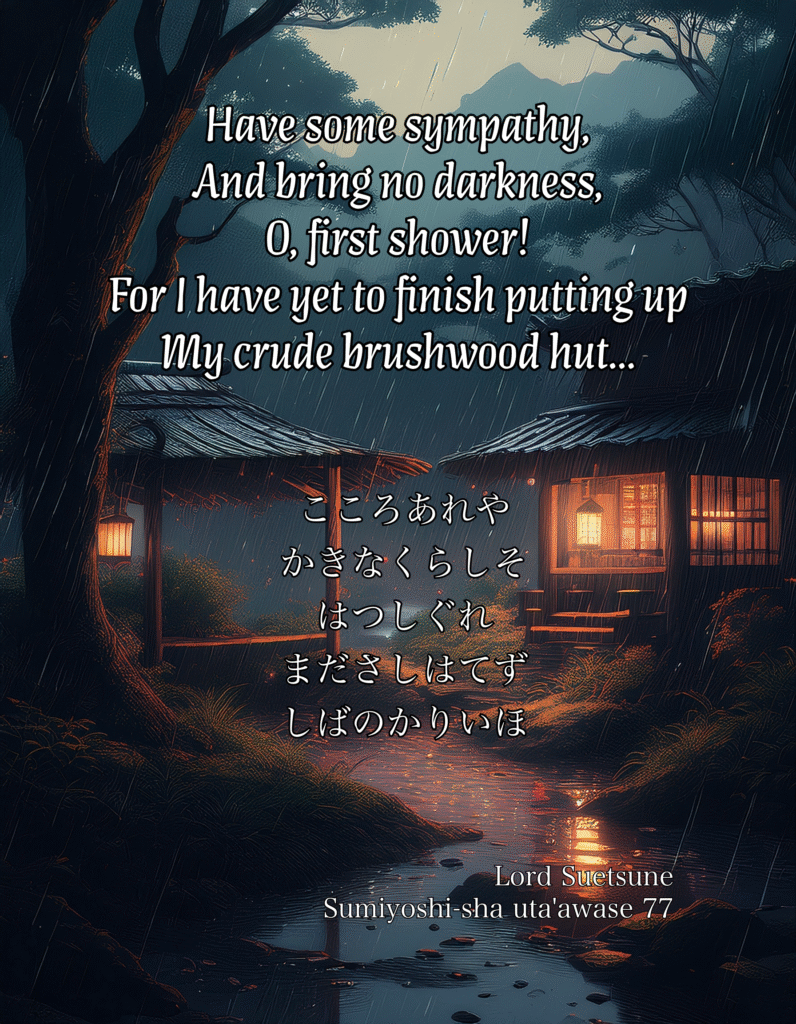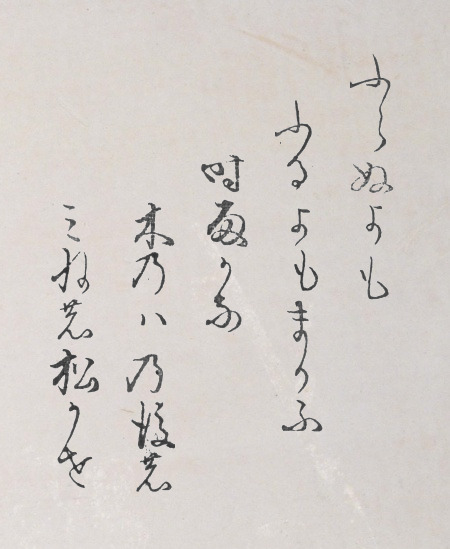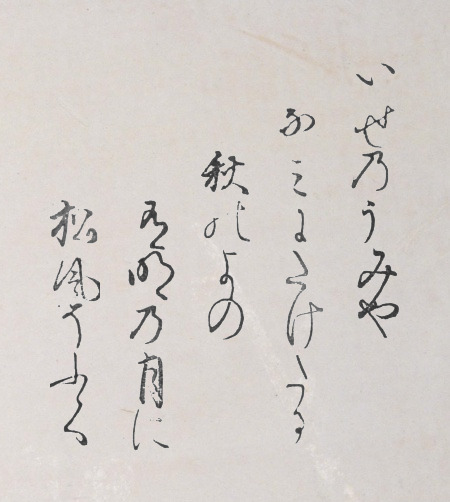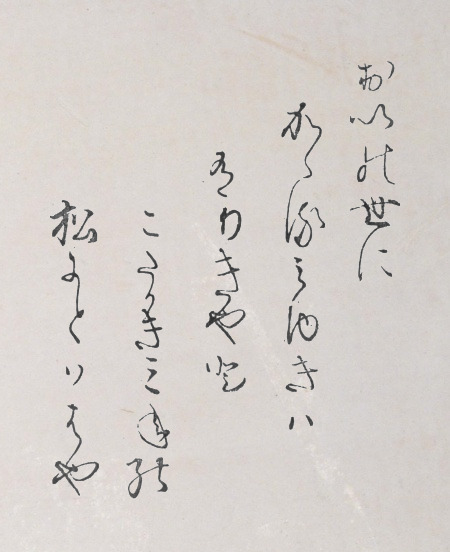Round Fourteen
Left
こころあれやかきなくらしそはつしぐれまださしはてずしばのかりいほ
| kokoro are ya kaki na kurashi so hatsushigure mada sashihatezu shiba no kari’io | Have some sympathy, And bring no darkness, O, first shower! For I have yet to finish putting up My crude brushwood hut… |
Lord Suetsune
77
Right (Win)
すみよしのまつがしたねのたびまくらしぐれもかぜにききまがへつつ
| sumiyoshi no matsu ga shita ne no tabimakura shigure mo kaze ni kikimagaetsutsu | At Sumiyoshi Beneath the pines, their roots are My journey-pillow, as The shower, too, with the gusting wind I hear blending together. |
Takanobu
78
The Left’s latter section, which states that the poet has ‘yet to finish putting up’ his hut, has a truly charming configuration as a poem on the conception of travel, but the phrase ‘have some sympathy’ does not appear to be a conception which has prior precedent. It could be a way of expressing the emotion through the shower. As for the Right, while I do question the sound of ‘journey-pillow’, it is the case that in Cathay-style poems this appears, but what are we do to about the fact that this is not ‘pillow on my journey’, I wonder? The sequencing of ‘the shower, too, with the wind’ is pleasant, isn’t it. Thus, I make the Right the winner.
